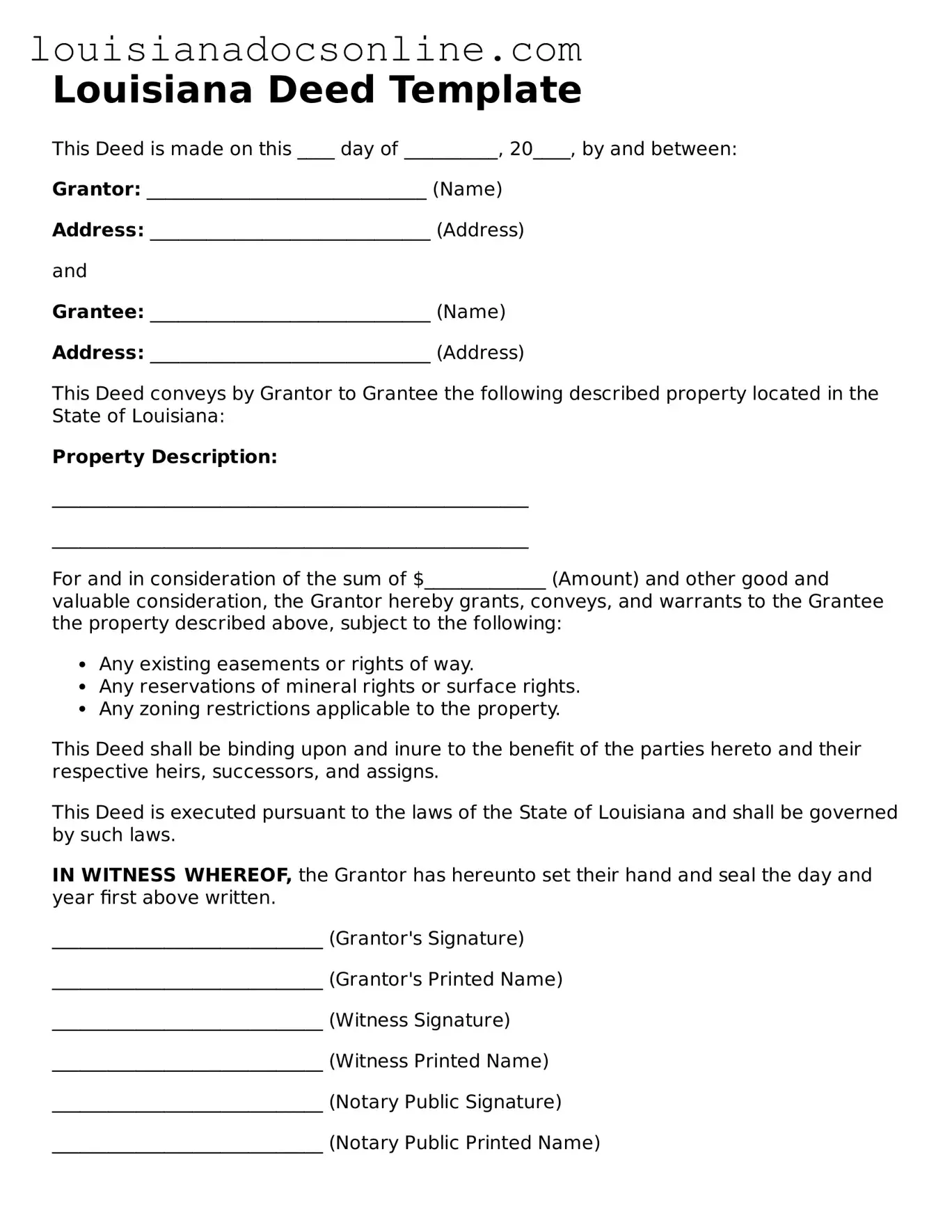Printable Deed Form for Louisiana
A Louisiana Deed form is a legal document used to transfer ownership of real property from one party to another. This form is essential in ensuring that the transaction is recognized and enforceable under Louisiana law. Understanding its components and proper usage can help facilitate smooth property transfers and protect the rights of all parties involved.
Get This Form Now

Printable Deed Form for Louisiana
Get This Form Now
Don’t forget to finish your form
Finish Deed online — fast edits, instant download.
Get This Form Now
or
↓ Deed PDF
